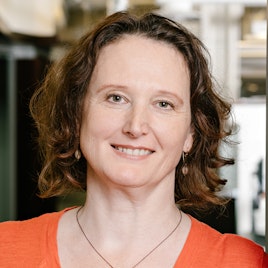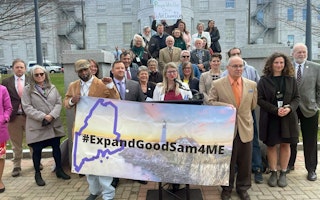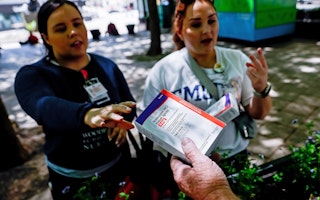Responding to Crack in Rio
By Kasia Malinowska-Sempruch & Karolina Walecik
Crack—cocaine mixed with baking powder and water to make smokable "rocks"—may seem an issue typical to Latin America and its numerous favelas (Portuguese for "shantytowns"). In Brazil, crack use reached epidemic proportions in Sao Paulo in the mid-1990s. Rio de Janeiro started experiencing this problem a few years later. Today around 90 percent of homeless people (including children and adolescents) in Rio are addicted to crack.
Viva Rio—an NGO based in the city—has been active in the area of public policy since 1993, with drug policy as one of its focus areas. Together with the Ministry of Health and Viva Comunidade, Viva Rio decided to cast more light on the phenomenon of crack cocaine use during a two-day seminar, "Crack: Rethinking the Strategies for Health Care," in early June. Rubem Cesar Fernandes, executive director of Viva Rio, explained why his organization is addressing this issue:
[Thanks to our experience in community work] we are capable of speaking with practical authority to public opinion, from the viewpoints of prevention and of treatment. We can also explore deeper cooperation with the security forces in the communities that are embraced by the new community policing strategy, called “UPP, Unidade de Polícia Pacificadora” (the Pacifying Police).
The event aimed to define a joint action plan to be implemented by Viva Rio and Rio de Janeiro's municipality to counteract the social harms stemming from the use and abuse of crack and other psychoactive substances (including alcohol). Speakers were invited from Viva Rio, Rio City Hall, as well as the Brazilian Ministries of Health and Justice to discuss the policies their departments follow and drug dependence issues which they regularly encounter. Guests from the US and Canada also shared experiences from their countries.
Brazil has an impressive history of harm reduction policies—policies that aim to lessen social and health damages resulting from substance use. In response to rapidly growing numbers of STD/HIV infections, the first needle-exchange programs were introduced in 1989 by Fabio Mesquita, a physician working for the City of Sao Paulo. Yet the responsibility was not only left to the cities, individuals or NGOs. In 2005, a state decree was published and the Ministry of Health (under Lula de Silva presidency) adopted harm reduction into its official agenda.
In terms of crack cocaine, harm reduction could mean activities such as facilitating access to health care and psychological counseling, and provision of crack-smoking kits or materials to produce pipes instead of using cans that are detrimental to the user’s health.
Pedro Gabriel Delgado (Ministry of Health) mentioned some of the measures already taken by the government, including harm reduction seminars for young people (drawing on their experience) and a national health care network for experience exchange, adding that there is still plenty of work to be done; building Drugs and Alcohol Psychosocial Care Centers in rural areas and smaller cities; providing education about crack; centralizing the problem of drug-dependence and placing programs within communities; creating shelters; and providing street assistance and drop-in centers.
All parties agree that changes in Brazilian drug policies in light of harm reduction principles should be the agenda for the forthcoming government. And it is just the right time to plan a strategy as a new government is due to take office later this year.
More information on the seminar, including the list of speakers, is available in Portuguese (download pdf) or in English (via Google Translate)
Viva Rio is a grantee of the Global Drug Policy and the Latin America programs of the Open Society Institute. In 2009, Viva Rio set up the Brazilian Commission on Drugs and Democracy, which promotes rational, evidence-based drug policy. Currently Viva Rio is engaged in the Viva Comunidade program, operating in the majority of Rio de Janeiro’s favelas.

Kasia Malinowska-Sempruch is a director of Programs at the Open Society Foundations.
Until August 2014, Karolina Walecik was a program officer with the Open Society Global Drug Policy Program.


